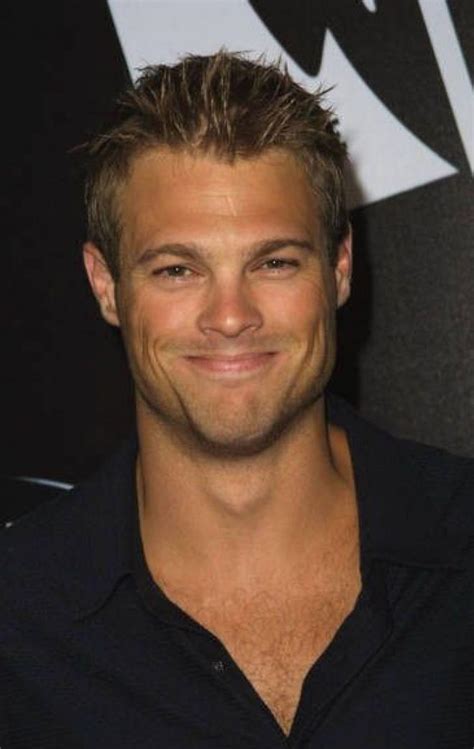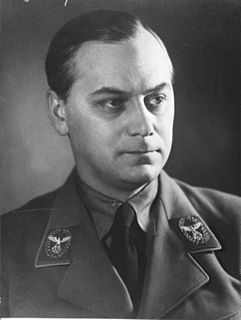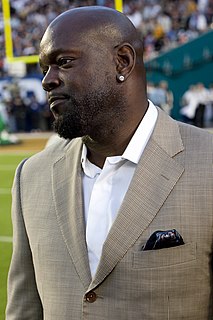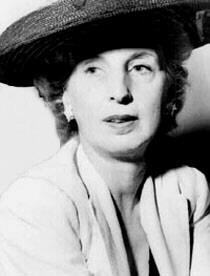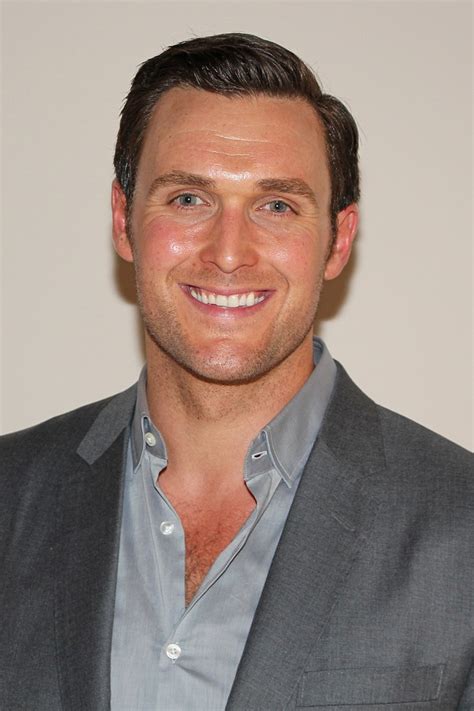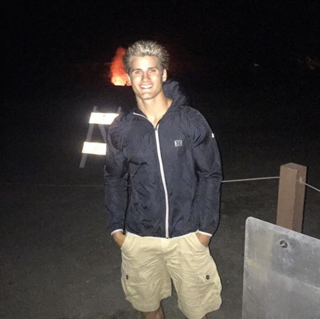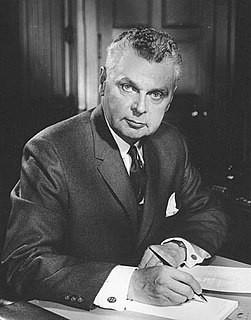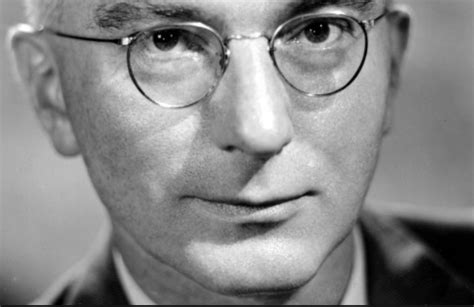Top 1200 Studying History Quotes & Sayings - Page 3
Explore popular Studying History quotes.
Last updated on April 19, 2025.
In studying the history of the human mind one is impressed again and again by the fact that its growth keeps pace with a widening range of consciousness, and that each step forward is an extremely painful and laborious achievement. One could almost say that nothing is more hateful to man than to give up the smallest particle of unconsciousness. He has a profound fear of the unknown. Ask anybody who has ever tried to introduce new ideas!
When I went to college, it was so easy. And I worked two jobs while I was in school all the way through; I put myself through school. But working and studying was easy for me because I had worked so hard in high school, studying all the time. Taking only three classes and then working was an easy life in comparison.
Black History is enjoying the life of our ancestors who paved the way for every African-American. No matter what color you are, the history of Blacks affected everyone; that's why we should cherish and respect Black history. Black history changed America and is continuing to change and shape our country. Black history is about everyone coming together to better themselves and America. Black history is being comfortable in your own skin no matter what color you are. Black history makes me proud of where I came from and where I am going in life.
I do preach the idea of individualism as in not adapting any kind of style or model other than that one of your own. I always found it strange in art history when studying about the different guilds and movements. It sounded too contrived and having to follow devised parameters to create art. I personally am not a team player in that manner. The art should be labeled by the artist's name only.
I think that the Bible as literature should be a compulsory part of the national curriculum.. you can't understand English literature and culture without it. But insofar as theology studies the nature of the divine, it will earn the right to be taken seriously when it provides the slightest, smallest smidgen of a reason for believing in the existence of the divine. Meanwhile, we should devote as much time to studying serious theology as we devote to studying serious fairies and serious unicorns.
The theory of Marx, Engels, Lenin and Stalin is universally applicable. We should regard it not as a dogma, but as a guide to action. Studying it is not merely a matter of learning terms and phrases but of learning Marxism-Leninism as the science of revolution. It is not just a matter of understanding the general laws derived by Marx, Engels, Lenin and Stalin from their extensive study of real life and revolutionary experience, but of studying their standpoint and method in examining and solving problems.
The United States is looking at a way to launch peace with a disarmed Iraq. And so we are studying the declaration that Iraq submitted. Other members of the security council are studying the declaration, as is Unmovic and IAEA, and I would not make a judgment as to whether or not the declaration will be found deficient and whether or not that might lead to a material breach and whether or not, if it did, that would lead to action on the part of the United Nations.
All I wanted to do while I was a teenager was go out and play most of the time and just enjoy life and have fun. I wasn't big into school, you know, I look back now and wish I would have spent more time studying and enjoyed it more. It's not for everyone and I didn't enjoy it that much like going to school and studying - some stuff I did but some of it I didn't. My attention span wasn't there.
When I wrestled, I would set aside the time to wrestle, so that in my mind it didn't interfere with my study time. If I'd say, "I'm going to study this many hours, then I'm going to go work out and wrestle," then when that time comes, you don't feel like you should be doing something else. That helped me psychologically. But otherwise? When I'm wrestling, I'm not studying the universe. And when I'm studying the universe, I'm not wrestling.
If you study Japanese art you see a man who is undoubtedly wise, philosophic and intelligent, who spends his time how? In studying the distance between the earth and the moon? No. In studying the policy of Bismarck? No. He studies a single blade of grass. But this blade of grass leads him to draw every plant and then the seasons, the wide aspects of the countryside, then animals, then the human figure. So he passes his life, and life is too short to do the whole.
'London' is a gallery of sensation of impressions. It is a history of London in a thematic rather than a chronological sense with chapters of the history of smells, the history of silence, and the history of light. I have described the book as a labyrinth, and in that sense in complements my description of London itself.
Jack, my 16 year old, was in knots a couple of months back, studying for Latin. I said, "Mate, you've got no interest in Latin. You don't want to go into it after, so drop it." He said, "No, I can't. I'm going to get bullied at school because all my mates are in there." There's a prime example of why no one cooks at school. You're studying Latin, you've got no interest.
History is my passion. So I write what I love to read. I find that if I combine history with a strong, sensual romance, it is like a one-two punch. The reader doesn't want the history without the romance, and of course the heavier the history, the more it has to be leavened with a sensual, all-consuming love story.
I began studying human emotions more than twenty years ago. At that time, almost every scientist working in this area was studying one of the negative emotions, like fear, anger, anxiety, or depression. I wondered why no scientists cared to explain why we humans sometimes feel upbeat and pleasant. I liked the idea of charting new terrain. It's been a fun intellectual puzzle. There's so much to discover!
Do you really like studying?" Mattia nodded. "Why?" "It's the only thing I know how to do," he said shortly. He wanted to tell her that he liked studying because you can do it alone, because all the things you study are already dead, cold, and chewed over. He wanted to tell her that the pages of the schoolbooks were all the same temperature, that they left you time to choose, that they never hurt you and you couldn't hurt them either. But he said nothing.
The settler makes history and is conscious of making it. And because he constantly refers to the history of his mother country, he clearly indicates that he himself is the extension of that mother country. Thus the history which he writes is not the history of the country which he plunders but the history of his own nation in regard to all that she skims off, all that she violates and starves.
I don't know the history of hating communism in America. I've always been interested in it, and I've thought about studying it in the past, but I've just looked into other topics first. That certainly sounds like a good topic that we could do on the show. I think it would be really interesting. We would just need to spend a lot of time researching it, getting into it, running down that topic. So I'll take that as a really good pitch for a future episode.
The introduction of the Christian religion into the world has produced an incalculable change in history. There had previously been only a history of nations--there is now a history of mankind; and the idea of an education of human nature as a whole.--an education the work of Jesus Christ Himself--is become like a compass for the historian, the key of history, and the hope of nations.
I have to throw in on a personal note that I didn't like history when I was in high school. I didn't study history when I was in college, none at all, and only started to do graduate study when my children were going to graduate school. What first intrigued me was this desire to understand my family and put it in the context of American history. That makes history so appealing and so central to what I am trying to do.
Having full-time classes, it doesn't really work out because there's so much workload and so much studying that you really don't have time to train. I'd stay up until two or three in the morning just studying, and then I'd have to go get a few miles running, work out at the gym super late, and try to get my working out in late at night.
London' is a gallery of sensation of impressions. It is a history of London in a thematic rather than a chronological sense with chapters of the history of smells, the history of silence, and the history of light. I have described the book as a labyrinth, and in that sense in complements my description of London itself.
We should emphasize not Negro History, but the Negro in history. What we need is not a history of selected races or nations, but the history of the world, void of national bias, race, hate, and religious prejudice. There should be no indulgence in undue eulogy of the Negro. The case of the Negro is well taken care of when it is shown how he has far influenced the development of civilization.
I feel history is more of a story than a lesson. I know this idea of presentism: this idea of constantly evoking the past to justify the present moment. A lot of people will tell you, "history is how we got here." And learning from the lessons of history. But that's imperfect. If you learn from history you can do things for all the wrong reasons.
Plainly, such an approach does not exclude other ways of trying to comprehend the world. Someone committed to it (as I am) can consistently believe (as I do) that we learn much more of human interest about how people think and feel and act by reading novels or studying history than from all of naturalistic psychology, and perhaps always will; similarly, the arts may offer appreciation of the heavens to which astrophysics cannot aspire.















